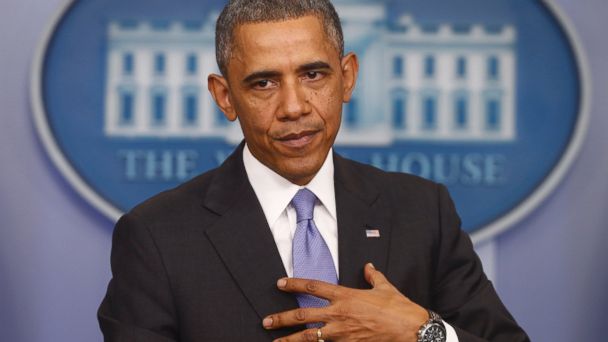Millennials Sour on Both Obama and Obamacare

Credit: Charles Dharapak/AP Photo
Call them what you will - millennials, Generation Y, the "me" generation - but don't take them for granted as Obama supporters any more.
A new poll out today from Harvard University's Institute of Politics shows that the majority of young people, a core support group throughout President Obama's time in office, disapproves of the Affordable Care Act, with less than a third saying they would sign up, an essential element to the success of Obamacare.
The survey polled 18- to 29-year-olds, and twice as many respondents said they believe health care under the Affordable Care Act will get worse than get better - 44 percent to 17 percent. And half of the respondents said they believe costs will increase while about 10 percent said costs will decrease.
"We found that millennials are unlikely to buy something, invest in something, to vote for something from people and from things they don't necessarily trust and that's a serious concern today," Harvard Institute of Politics Polling Director John Della Volpe said today in a conference call outlining the results.
When the law was referred to as the Affordable Care Act, 39 percent of respondents approved, while 56 percent disapproved. When the law was referred to as Obamacare, the numbers were similar, with 38 percent saying they approve and 57 percent saying they disapprove.
Harvard's findings are similar to the ABC News/Washington Post poll from last month that found 40 percent of adults supporting the law, while 57 percent oppose.
Harvard's survey comes out the same day the president is scheduled to speak at the White House Youth Summit on the Affordable Care Act.
The survey also found fewer than one-in-four young Americans will definitely or probably enroll in insurance through an exchange, a critical element of the success of the Affordable Care Act.
Among the uninsured - accounting for 22 percent of those surveyed - 25 to 29 percent said they are likely to enroll, 41 percent remained on the fence, and 28 percent said they are unlikely to enroll.
When broken down among party affiliation, less than 10 percent of Republicans planned to enroll through an exchange, less that 20 percent of independents, and 35 to 40 percent of Democrats.
The president's approval ratings have also plummeted and are at the lowest point this survey has found since the beginning of his administration. Among 18- to 29-year-olds, the survey found 41 percent approve and 54 percent disapprove, an 11-point decline in seven months.
The Harvard study also found the president losing 16 points in his approval rating among women since last April, 9 points from men, as well as 9 points among young African Americans.
In the ABC News/Washington Post poll from last month, the survey also found support fading with young adults, a group Obama won by a historic margin in 2008 and strongly again in 2012. The president's overall approval rating dropped 23 points among adults age 18 to 29 since January, his steepest loss in any group.
"Although millennials have held firm in their approval of the president's job performance in past polls, we are now seeing a sea change among this critical demographic," said Trey Grayson, director of Harvard's Institute of Politics."The president is experiencing double-digit drops in his job performance rating among millennials over the past 7 months and that rating is now the lowest we've seen in his presidency."
The survey also found approval ratings for both Democrats and Republicans in Congress have also fallen significantly over the same time period, with 35 percent approval for Democrats in Congress and 19 percent approval for Republicans.
Della Volpe said he believes the results are "absolutely" because the president has not been effective in communicating to young people what the health care law is about.
"They have been the folks that are the most optimistic and most trusting of the president and Congress to solve the problems they care about," Della Volpe said.
Grayson said other issues, such as a still struggling economy, college debt, as well unemployment and underemployment are all reasons the president's numbers have taken a hit.
"Clearly when you have a signature domestic policy achievement that far under water with approval and that lack of an interest in signing up even if you are uninsured that's got to translate into low numbers as well," Grayson said.
Della Volpe noted that despite the disappointment with Obama, as well as Democrats and Republicans in Congress, this group remains "passionate about government, they are passionate about America, and they want to go to work and solve the issues that are facing this generation and future generations."